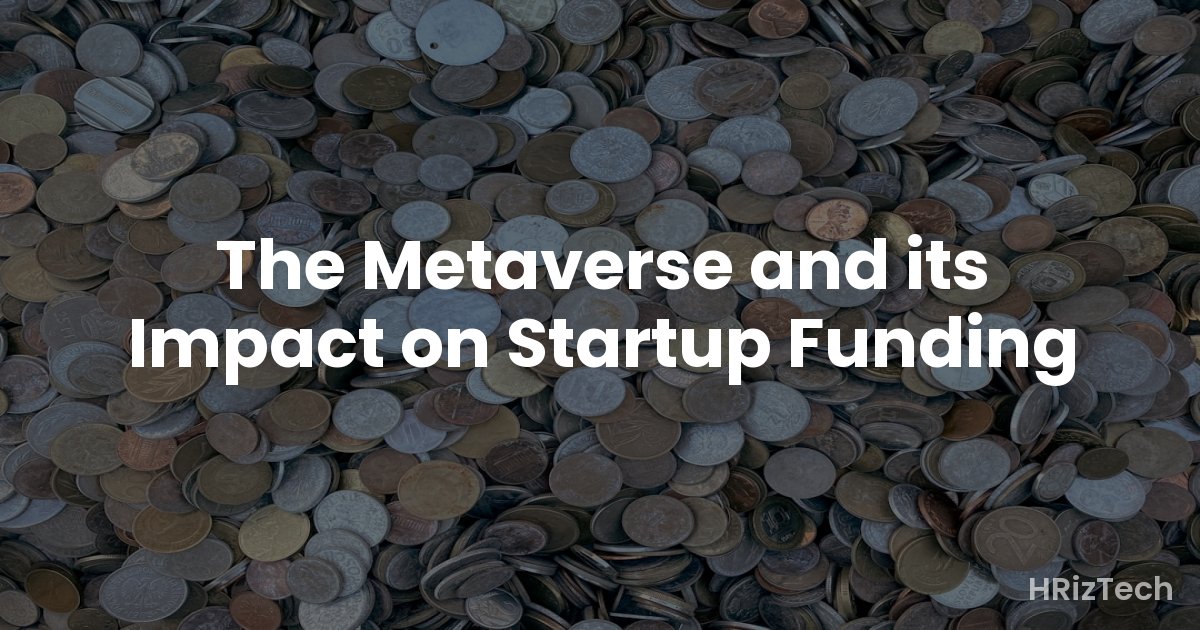The Metaverse and its Impact on Startup Funding

The Metaverse and its Impact on Startup Funding
- Metaverse startups are attracting significant investment, but the landscape is evolving rapidly.
- Understanding the different metaverse sectors is crucial for investors.
- VR/AR hardware, software development, and user experience are key areas to watch.
- Regulatory uncertainty and technological hurdles pose challenges for investors.
- Successful metaverse ventures will need strong teams and innovative business models.
The Metaverse: A Gold Rush or a Fool's Errand?
The metaverse. It's a buzzword that's been tossed around more than a frisbee at a tech conference. But beneath the hype lies a rapidly evolving technological landscape with the potential to reshape how we interact, work, and play. And that potential is attracting billions in startup funding. Is this a genuine technological revolution poised to create the next generation of tech giants, or is it just another fleeting trend destined for the digital dustbin? Let's dive in.
Where the Money's Going: Key Metaverse Sectors
The metaverse isn't a single entity; it's a collection of interconnected virtual worlds and experiences. This diversity translates into various investment opportunities. Here are some key sectors attracting substantial funding:
Virtual and Augmented Reality (VR/AR) Hardware
The foundation of the metaverse experience relies on hardware. Companies developing cutting-edge VR headsets, AR glasses, haptic suits, and other immersive technologies are securing significant funding. The race for comfort, fidelity, and affordability is fierce, and investors are betting on the companies they believe will win.
Software and Development Platforms
Building the metaverse requires sophisticated software. This includes game engines, 3D modeling tools, and platforms for creating and managing virtual worlds and assets. Startups offering innovative development tools are attracting considerable interest, as are those building decentralized platforms that allow for user-generated content and ownership.
User Experience (UX) and Design
A compelling metaverse experience hinges on intuitive and engaging user experiences. Startups focusing on UX/UI design, accessibility, and user onboarding are becoming increasingly crucial. Investors recognize that even the most technologically advanced metaverse will fail without a seamless and enjoyable user experience.
Decentralized Metaverse Platforms
The promise of decentralization and Web3 technologies is attracting significant investment. Startups building decentralized metaverse platforms, leveraging blockchain technology for asset ownership and governance, are seeing considerable funding. However, the technological challenges and regulatory uncertainty in this space are considerable.
Metaverse-Specific Applications
Beyond the foundational technologies, numerous startups are building specific applications within the metaverse. These range from virtual events and conferences to virtual offices and collaborative workspaces, virtual retail experiences, and even virtual healthcare solutions. The potential applications are vast, and investors are backing companies with compelling use cases.
Challenges and Risks
While the metaverse holds immense promise, it's not without its challenges. Investors need to be aware of the following risks:
Technological Hurdles
Creating truly immersive and seamless metaverse experiences requires overcoming significant technological hurdles. Issues like latency, bandwidth requirements, and the development of more sophisticated hardware and software are ongoing challenges.
Regulatory Uncertainty
The legal and regulatory landscape surrounding the metaverse is still evolving. Concerns about data privacy, intellectual property rights, and the potential for misuse are significant challenges that could impact investment decisions.
Interoperability Issues
One of the biggest challenges facing the metaverse is the lack of interoperability between different platforms. Users should be able to seamlessly move between different virtual worlds and carry their digital assets with them. Solving this interoperability problem is crucial for the metaverse to reach its full potential.
The Hype Cycle
It's important to differentiate between genuine innovation and hype. Many startups are simply riding the wave of metaverse enthusiasm without a solid business model or a clear path to profitability. Investors need to carefully vet companies and assess their long-term viability.
Finding Success in the Metaverse
Despite the challenges, the metaverse offers substantial opportunities for startups with strong teams, innovative business models, and a clear understanding of the market. Successful metaverse ventures will need to:
- Focus on solving real-world problems using metaverse technologies.
- Develop compelling and engaging user experiences.
- Build strong communities around their platforms.
- Adapt to the rapidly changing technological landscape.
- Navigate the regulatory environment effectively.
The Future of Metaverse Funding
The metaverse is still in its early stages, but the amount of investment pouring into the sector is undeniable. While challenges remain, the potential for transformative impact is immense. The coming years will be crucial in determining which metaverse ventures succeed and which ones fade away. The key will be innovation, adaptability, and a clear understanding of the evolving landscape.
Comments
No comments yet. Be the first to comment!